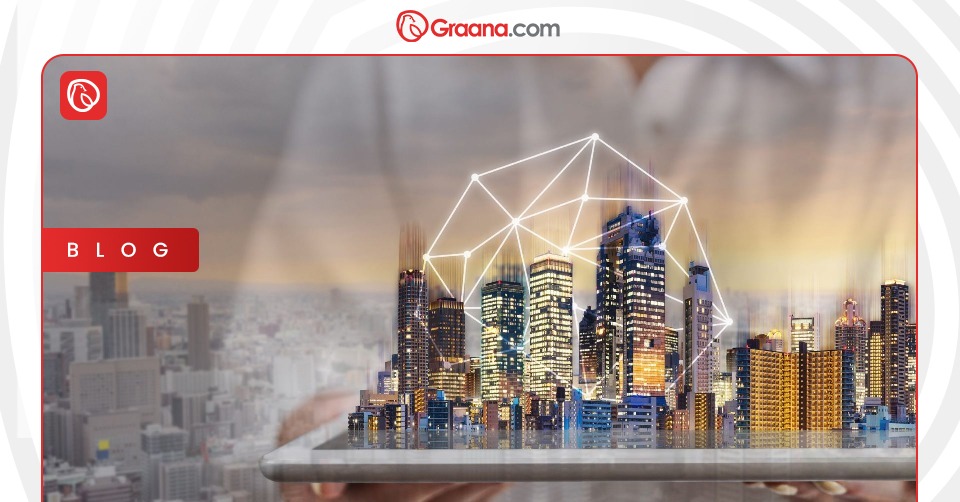
Source: Graana.com
The real estate sector in Pakistan is undergoing a transformation. Traditionally marked by manual processes and limited technological integration, the industry is now on the cusp of a digital revolution. Smart real estate, which combines technology, innovation, and sustainable practices, is paving the way for a more efficient and transparent property market. This blog delves into the potential of smart real estate to reshape the landscape of Pakistan’s property market.
Smart real estate integrates advanced technologies into the design, construction, and management of properties. It leverages tools such as the Internet of Things (IoT), artificial intelligence (AI), and automation to create smarter and more efficient spaces. Key components of smart real estate include:
These advancements not only enhance convenience and security but also contribute to long-term cost savings and sustainability.
Pakistan’s real estate sector has traditionally relied on manual methods for property buying, selling, and management. While the industry has grown significantly over the past few decades, it still faces several challenges:
Despite these challenges, there is a growing realization of the need to embrace modern practices, creating opportunities for smart real estate solutions.
The integration of technology into real estate is introducing new trends that are set to redefine the industry:
These trends are not only enhancing customer experiences but also streamlining operations for developers and investors.
The adoption of smart real estate technologies offers numerous benefits for Pakistan:
These benefits make smart real estate an attractive option for developers, investors, and homeowners alike.
Despite its potential, the adoption of smart real estate in Pakistan faces several hurdles:
Addressing these challenges will require collaboration between the government, private sector, and tech innovators.
The successful implementation of smart real estate in Pakistan will depend on the coordinated efforts of various stakeholders.
Globally, countries like Dubai and Singapore have set benchmarks in smart real estate. For instance, Dubai has implemented smart city initiatives, including AI-powered traffic management and energy-efficient buildings. In Pakistan, projects like IMARAT Downtown are incorporating elements of smart infrastructure, showcasing the potential of technology-driven real estate development.
The future of real estate in Pakistan lies in adopting smart technologies. Over the next decade, we can expect:
To achieve these goals, Pakistan must:
Smart real estate represents a transformative opportunity for Pakistan’s property market. By leveraging advanced technologies, the industry can overcome traditional challenges and pave the way for a more efficient, transparent, and sustainable future. It’s time for stakeholders to embrace this change and unlock the immense potential of smart real estate in Pakistan.
For more related information, visit Graana Blog.
Lahore, April 23, 2025 – The city of Lahore has successfully completed the construction of…
ISLAMABAD, Pakistan – April 23, 2025 – Chaaye Khana, Pakistan's popular cafe renowned for its…
ISLAMABAD: Prime Minister Shehbaz Sharif laid the foundation stone for the Murree Road underpass on…
DUBAI: Pakistani real estate developers and representatives showcased a range of commercial and residential investment…
ISLAMABAD: Capital Development Authority (CDA) is currently undertaking a major Rs652 million project to upgrade…
Karachi – Mayor Barrister Murtaza Wahab has announced the launch of a citywide anti-encroachment operation…